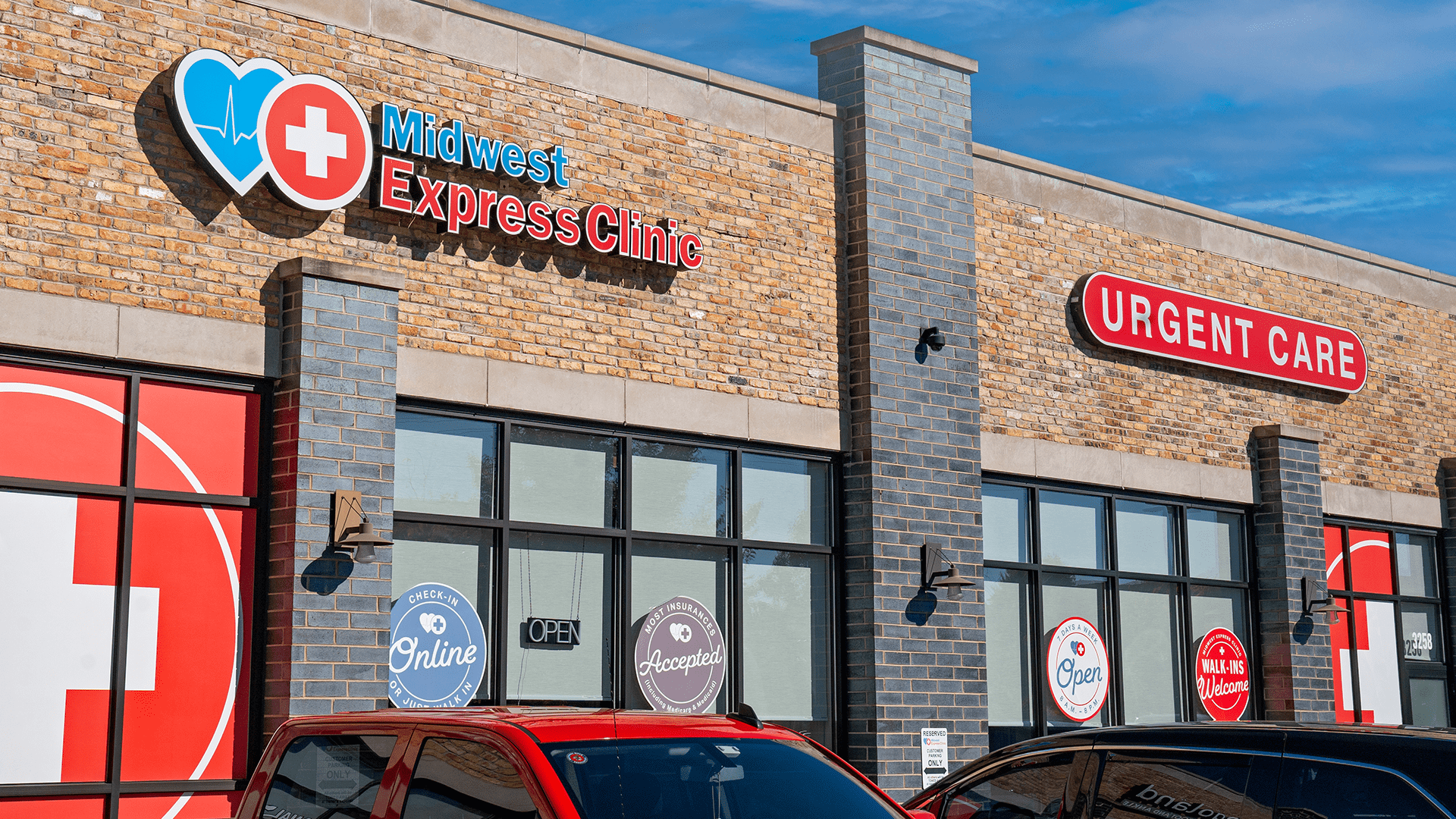Contrasting Urgent Care Clinics: What Establishes Our Clinic Apart
Contrasting Urgent Care Clinics: What Establishes Our Clinic Apart
Blog Article
The Significance of Urgent Treatment Centers in Connecting the Void Between Medical Care and Emergency Services
Immediate treatment centers have arised as a crucial element of the healthcare landscape, effectively dealing with the vital need for immediate clinical attention without resorting to emergency situation services. The advancing function of urgent treatment centers raises important inquiries regarding their integration within the more comprehensive medical care system and the ramifications for client outcomes and source allowance.
Summary of Urgent Care Centers
Urgent care facilities have actually come to be a vital element of the medical care delivery system, giving obtainable medical services for non-life-threatening conditions. These centers normally operate outside common office hours, offering individuals a choice to emergency clinic and primary treatment setups. People looking for immediate treatment commonly existing with issues such as small injuries, infections, or diseases that call for prompt interest yet do not pose a prompt risk to life or arm or leg.
Urgent care centers are staffed by a variety of medical care experts, including physicians, nurse specialists, and medical professional aides, who are outfitted to diagnose and treat different medical worries. They commonly include analysis devices such as X-ray machines and laboratory solutions, enabling them to offer thorough treatment on-site.
The establishment of immediate treatment facilities has been affected by the boosting need for prompt clinical solutions in a fast-paced society, where people may battle to safeguard appointments with health care companies. As a result, these facilities aim to ease blockage in emergency divisions, enhancing total medical care effectiveness. In addition, urgent treatment centers often function as a bridge between health care and emergency services, guaranteeing that patients get appropriate treatment customized to their certain clinical needs.

Advantages of Urgent Care Solutions
Accessing prompt clinical care is a substantial advantage of urgent care solutions. These facilities give immediate attention for non-life-threatening problems, properly reducing wait times compared to standard emergency situation divisions. People looking for look after small injuries, illnesses, or urgent health problems can acquire therapy without the long hold-ups commonly connected with hospital visits.
One more key benefit is the extended hours of operation. Numerous urgent care centers are open nights and weekend breaks, suiting people that might not be able to visit their health care copyright throughout typical workplace hours. This adaptability makes immediate care an easily accessible choice for those with hectic schedules or abrupt wellness problems.
Furthermore, urgent care centers often offer a variety of services, consisting of analysis screening, X-rays, and basic laboratory solutions. This thorough method permits quick medical diagnosis and therapy, improving client complete satisfaction.
In addition, immediate treatment facilities are usually a lot more economical than emergency situation areas, making them an eye-catching option for individuals without insurance coverage or those with high-deductible strategies. On the whole, urgent treatment solutions play a crucial duty in offering accessible, timely, and budget friendly healthcare.
Comparison With Medical Care
Typically, people typically weigh their alternatives between immediate care centers and health care suppliers when seeking clinical focus. Both serve essential duties in the healthcare system, yet they differ significantly in availability, expense, and scope.
Medical care carriers are generally the very first factor of call for individuals, focusing on long-term health monitoring, preventive care, and chronic disease administration. They supply connection of treatment, cultivating a patient-provider relationship that enables comprehensive health and wellness evaluations and individualized therapy plans. However, arranging an appointment can be time-consuming, often needing days or weeks beforehand.
On the other hand, urgent care centers give immediate look after non-life-threatening problems that require prompt interest, such as small injuries or infections. These facilities typically operate beyond conventional office hours, suiting clients who might not have the ability to visit their health care service provider throughout routine service times. Furthermore, urgent treatment is normally much more affordable than emergency clinic sees, making it an appealing option for those with restricted health care access.
Ultimately, while immediate care centers and medical care providers both add to individual health and wellness, they satisfy unique demands, making it vital for clients to establish which choice ideal straightens with their scenarios.
Emergency Providers Interaction
The communication between urgent treatment centers and emergency situation services is an important helpful hints facet of the healthcare landscape, specifically when patients face scenarios that may rise in intensity. Immediate treatment centers serve as a bridge in between medical care and emergency departments, attending to non-life-threatening problems that require instant interest. This collaboration improves person results and maximizes resource appropriation within the healthcare system.
When individuals offer with urgent however not life-threatening concerns, immediate treatment facilities can effectively handle their needs, minimizing congestion in emergency situation areas. When pop over to this site a person's problem exceeds the range of urgent care treatment, Facilities equipped with diagnostic abilities can assist in timely recommendations to emergency solutions. This seamless interaction helps ensure that clients receive the suitable level of treatment without unnecessary hold-ups.
In addition, efficient communication in between immediate treatment providers and emergency services is essential. Sharing client info and treatment histories fosters coordinated treatment, decreasing the danger of repetitive tests and procedures. As medical care remains to progress, the vibrant connection between immediate care centers and emergency situation services will certainly play an essential function in enhancing client treatment effectiveness, contentment, and total health and wellness outcomes within the area.
Future of Urgent Treatment Facilities
As health care needs develop, the future of immediate treatment centers is positioned to come to be increasingly integral to the total clinical ecological community (Urgent Care). These facilities are most likely to expand their functions by incorporating innovative technologies, such as telemedicine, expert system, and electronic wellness record assimilation. This will certainly improve person access and enhance care control between urgent treatment, medical care, and emergency situation services
In addition, immediate treatment centers are anticipated to expand their solution offerings to consist of preventive care and persistent condition management. This shift will position them as important parts in taking care of population wellness, decreasing the problem on emergency situation divisions, and attending to voids in key treatment schedule.
The expanding fad of value-based care will even more increase the makeover of immediate treatment facilities, prompting them to focus on individual results and satisfaction. Facilities may additionally adopt collective practice versions, working carefully with specialists and key treatment carriers to make sure extensive client management.
Verdict
To conclude, urgent care facilities serve a vital function hop over to here in the health care system by providing instant access to treatment for non-life-threatening conditions, properly easing pressure on emergency solutions. Their prolonged hours and varied range of services improve patient ease and contentment, while likewise making sure ideal care distribution. As healthcare needs proceed to develop, the duty of immediate care centers will likely come to be progressively significant, more connecting the void in between health care and emergency services.
The establishment of urgent care facilities has actually been influenced by the boosting need for timely medical services in a fast-paced society, where patients might struggle to safeguard visits with main treatment service providers. In addition, immediate treatment centers often serve as a bridge between primary treatment and emergency situation services, making sure that individuals get ideal treatment customized to their details medical requirements.
Several immediate treatment facilities are open evenings and weekends, suiting patients who may not be able to visit their key care copyright throughout basic office hours (Urgent Care). As healthcare continues to evolve, the dynamic relationship in between immediate treatment centers and emergency situation services will play a pivotal duty in boosting patient treatment effectiveness, complete satisfaction, and general health results within the area

Report this page